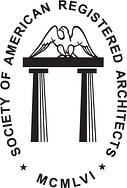 Energy Transfer Solutions is hosting our first collaborative AIA pre-approved seminar on Tuesday, December 16th - HVAC for Architects. We've designed a presentation with our architects in mind that provides education on basics of HVAC and how it applies to the architectural field.
Energy Transfer Solutions is hosting our first collaborative AIA pre-approved seminar on Tuesday, December 16th - HVAC for Architects. We've designed a presentation with our architects in mind that provides education on basics of HVAC and how it applies to the architectural field.
This course is pre-approved by the AIA for four (4) CEU credits, includes complimentary breakfast and lunch, and is free to S.A.R.A. members.
CEU Course Description:
This course is design to give architects an overview and introduction to heating, ventilation, and air conditioning. This course will focus on HVAC system types, design types, energy efficiencies, life cycle cost analysis, data center cooling, as well as basic system controls. Attendees will also learn about the architectural and mechanical codes related to HVAC design. The overall focus of the course is for attendees to gain knowledge on the effects that the HVAC design has on the overall architectural design of a project.
Event Location:
ABC Headquarters
Second Floor Training Room
430 West Germantown Pike
East Norriton, PA 19403
Date & Time:
Tuesday, December 16th, 2014
8:15 AM - 1:45 PM
To register for the seminar and learn more, please click here.
At the end of the this course, participants will be able to:
- Understand the architectural and mechanical codes relating to HVAC design. This includes COMcheck, ASHRAE codes, IECC, and LEED.
- Have a greater understanding of commercial HVAC system types and design types. This section also includes information on residential HVAC, system controls, and noise control/vibration isolation.
- Understand how life cycle cost analysis is performed and how cost estimates can be generated to compare different system types.
- Feel comfortable with data center and server room cooling basics.
Course Order:
- Introduction
- Architectural and Mechanical Codes
- Commercial HVAC Systems
- Residential HVAC
- Life Cycle Cost Analysis
- HVAC System Control
- Data Center & server Room Design
- Noise Control/Vibration Isolation
- LEED
- Review

.jpg?width=1024&height=576&name=about%20us%20(1).jpg)

